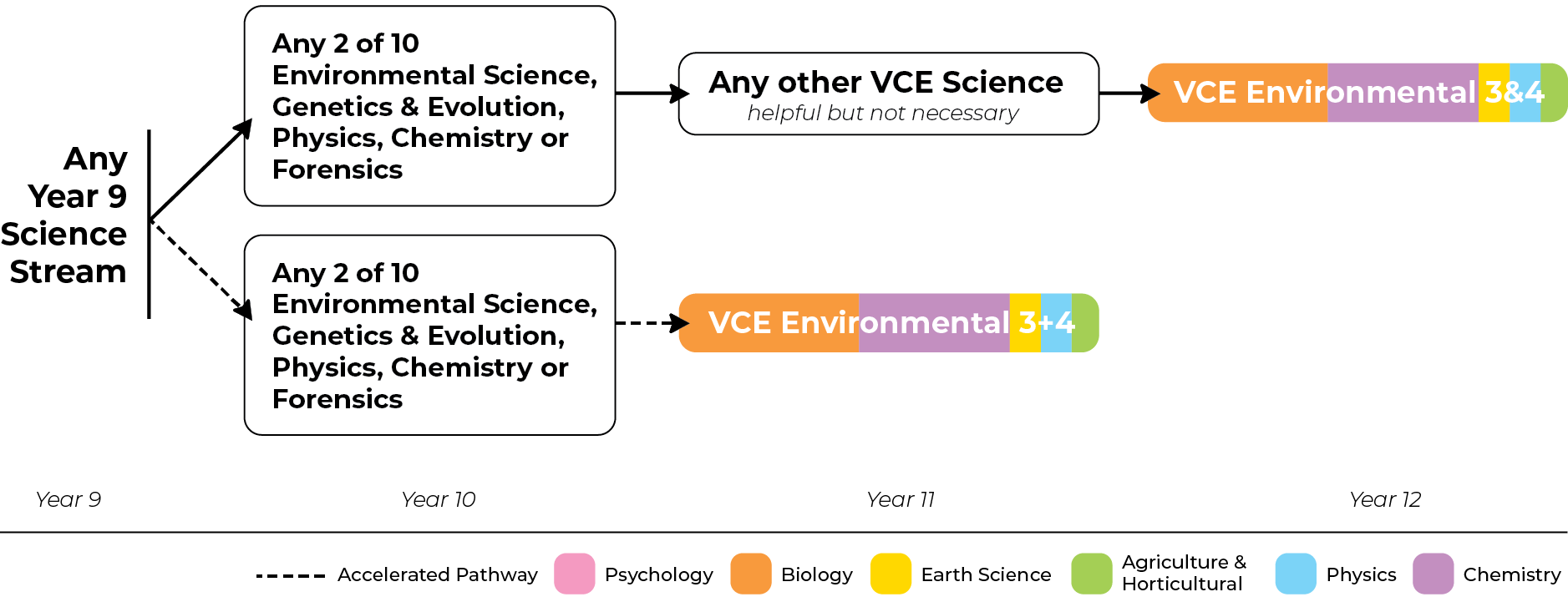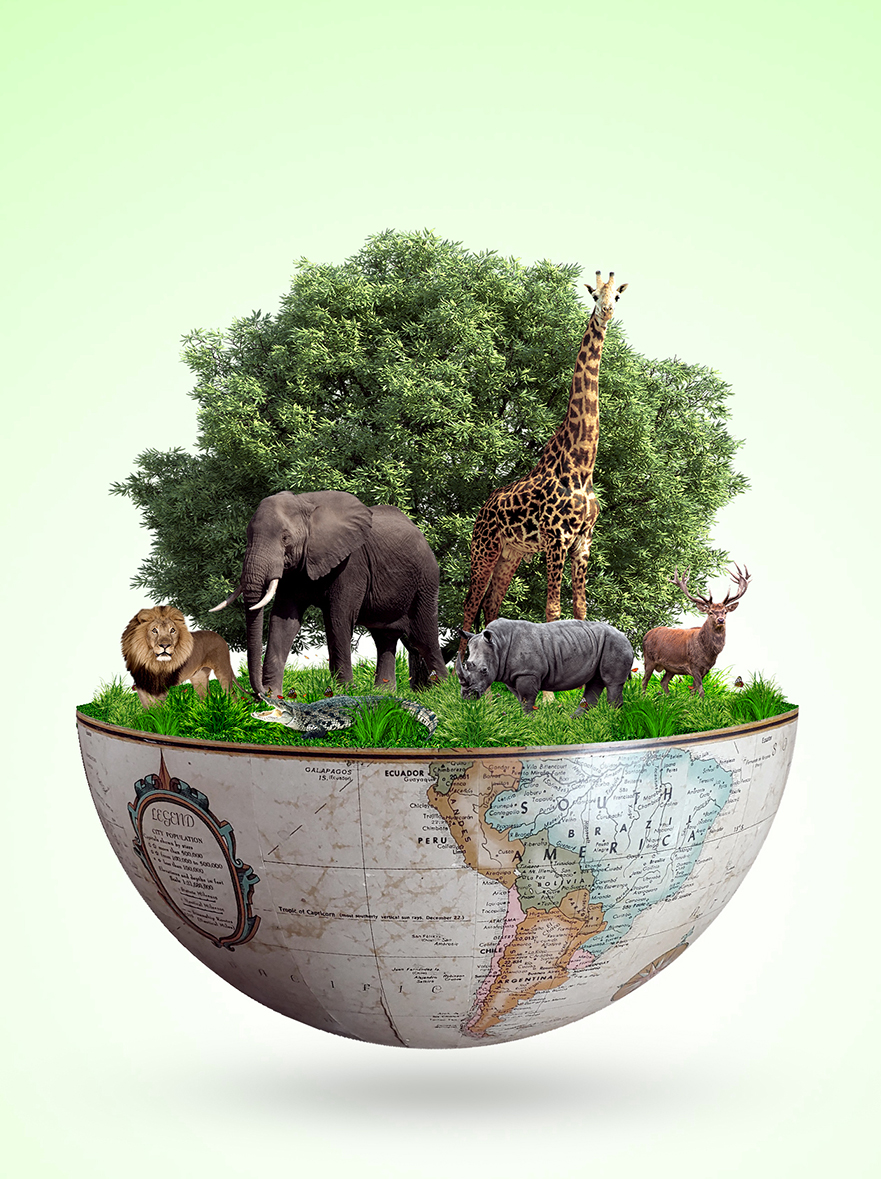Environmental Science Pathways

Environmental Science
Unit 3

Overview
How can biodiversity and development be sustained?
You will explore the value and importance of the biosphere and biodiversity to humans. You will analyse the processes that threaten biodiversity and investigate ways to manage ecosystems to preserve biodiversity. You will investigate short, medium and long term changes to ecosystems and the effect these changes have on biodiversity.
Download > VCE Environmental Science Study Design
Unit Prerequisites
Any 2 of Year 10 Chemistry, Genetics and Evolution, Forensics, Environmental Science, Aghort or Physics.
Areas of Study
- Why is maintaining biodiversity worth a sustained effort?
- When is development sustainable?
Unit Assessment
- Unit 3 School assessed coursework (SAC’s) 20%
- Unit 4 School assessed coursework (SAC’s) 30%
- Unit 3 & 4 examination 50%
Assessment for Outcomes 1 and 2 may include:
- Presentation of recommendations
- Design a practical response to an environmental issue
- Analysis and investigation of a case study
Design and conduct a scientific investigation related to biodiversity, environmental management, climate change and/or energy use and present an aim, methodology, and method, results, discussion and conclusion in a scientific poster.
Pathways
Students undertaking Acceleration can complete this unit in Year 11.
Unit 3 & 4 Environmental Science may lead to environmental science studies, research science, park ranger, public service.
Environmental Science
Unit 4

Overview
How can climate change and the impacts of human energy be managed?
In this unit, you will examine the concepts associated with the use of different forms of energy by human societies. The focus moves from understanding the relationship between the uses of local sources of energy to examining the global impacts of these uses, including consideration of the consequences over short (seconds to years), medium (multiple years to hundreds of years) and long (thousands to millions of years) time scales. You will investigate through fieldwork and practical activities the extent, availability, consequences, and alternative forms of energy available while considering the environmental, social and ethical challenges involved.
You will investigate the human-based factors that have resulted in the enhanced greenhouse effect and climate change. You will compare natural and enhanced greenhouse effects and their significance for sustaining ecological integrity.
Outcomes: During this unit, you will learn to compare the advantages and disadvantages of a range of energy sources, evaluate the sustainability of their use, and explain the impacts of their use. You will also explain the causes and effects of changes to Earth’s climate, compare methods of measuring and monitoring atmospheric changes, and explain the impacts of atmospheric changes on living things and the environment.
Download > VCE Environmental Science Study Design
Unit Prerequisites
Unit 3 Environmental Science
Areas of Study
- How can we respond to climate change?
- What might be a more sustainable mix of energy sources?
- How is scientific enquiry used to investigate contemporary environmental challenges?
Unit Assessment
- Unit 3 School assessed coursework (SAC’s) 20%
- Unit 4 School assessed coursework (SAC’s) 30%
- Unit 3 & 4 examination 50%
Assessment for Outcomes 1 and 2 may include:
- Presentation of recommendations
- Design a practical response to an environmental issue
- Analysis and investigation of a case study
Design and conduct a scientific investigation related to biodiversity, environmental management, climate change and/or energy use and present an aim, methodology, and method, results, discussion and conclusion in a scientific poster.
Pathways
Students undertaking Acceleration can complete this unit in Year 11.
Unit 3 & 4 Environmental Science may lead to environmental science studies, research science, park ranger, public service.

